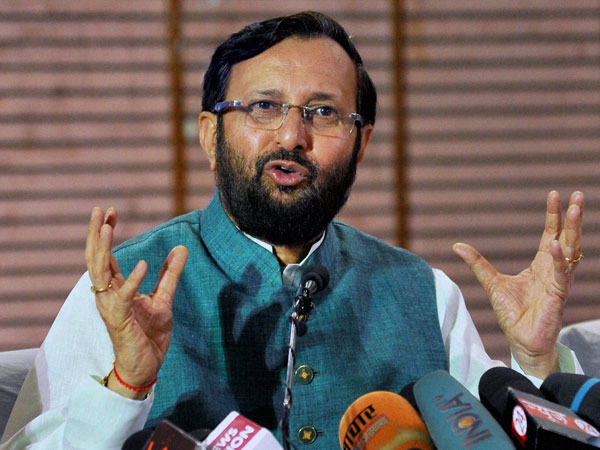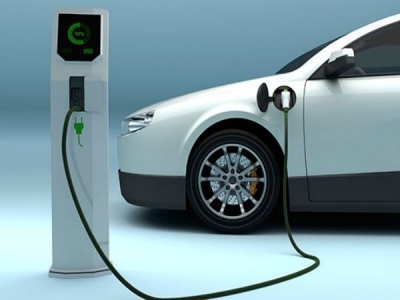Shoonya: A Forum for Zero-Pollution e-Mobility
On September 14, 2022, a day-long forum was organised by NITI Aayog to commemorate the first anniversary of Shoonya, India's campaign for zero-pollution e-mobility.
Shoonya, meaning "zero" in Sanskrit language, is a consumer awareness campaign that will reduce air pollution by encouraging the use of electric vehicles (EVs) for ride-hailing and deliveries.

Shoonya: The Concept of Net-Zero Emissions
The increase in urbanization and e-commerce sales globally is powering enormous growth in urban freight and mobility demand. In India, these sectors are predicted to grow at a CAGR of 8% by 2030. But the growth of these sectors will lead to significant rise in air pollution and carbon emissions and lead to serious public health issues as the demand will be met by internal combustion vehicles (ICE).
The challenges posed by ICE provide an opportunity to EVs as they release 60% less CO2 and have 75% lower operating costs. Shoonya complements prevailing national and subnational EV policies as well as corporate efforts in India by generating consumer awareness and need for zero-pollution rides and deliveries across Indian cities.
The campaign is administered by NITI Aayog and has over 130 corporate partners, including ride-hailing, delivery and EV companies.

What Is The Need Of Shoonya Campaign?
The "Shoonya", the "zero-pollution mobility" campaign, implies the start and origin of possibilities. The Shoonya campaign plans to transform the transport sector with an urgent need to move towards zero-emission vehicles. Globally, the concept of net-zero emissions is attracting a top priority. Many countries are bringing schemes and campaigns encouraging the adoption of climate-smart actions.
India being the fourth largest emitter of carbon dioxide is moving to resolve this issue by introducing various projects, and it aims to cut carbon emissions by 1 billion tonnes by 2030 and expects to achieve net-zero emission status by 2070. Initiatives from both government and private sectors, including businesses and other organisations, are essential to achieve net-zero emission in the country. At the Glasgow Conference in 2021, Prime Minister Narendra Modi has made multiple commitments regarding net-zero emissions.
The Shoonya Campaign: To Improve Air Quality and Health
India will improve air quality, reduce public health costs and enhance energy security if all final-mile deliveries and rides in India were to be Shoonya. In a year, India could save roughly 5.7 lakh crore in expenditures by electrification of the ride-hailing and delivery sector.
The Shoonya campaign will reduce the emission level in the transport sector, supporting India's agenda to reduce carbon emissions and secure its 2070 climate goals. India is working to install 50% of non-fossil sources to generate power by 2030.

Three Major Components of the Shoonya Campaign
Corporate Branding Programme - Recognising efforts of the industry partners to promote vehicle electrification, the Shoonya logo is branded under this programme for rides and deliveries carried out in EVs. The EVs that are used for deliveries and ride-hailing carry with them a Shoonya sticker and drivers wear a Shoonya badge.
Consumer Awareness Drive - The health and environmental benefits of the EV adoption are made aware to the public. The drive seeks to create awareness and increase demand for zero-pollution rides and deliveries among consumers, strengthening Shoonya as a slogan across every household in India.
Resource Toolkit - Under this toolkit, EV users are provided with online tools to evaluate the costs and effect of the adoption of electric vehicle adoption. These toolkits provide an impact-tracking dashboard sharing the progress and impact of the campaign till now, provide a calculator showing a cost and emissions comparison between EVs and their petrol, diesel and CNG counterparts and also provide a list concerning financing resources and policy incentives to support EV procurement.

Why Shoonya is Important?
An urban economy requires people and goods to move places. A growing population, rapid urbanisation and an increase in e-commerce expect the demand for urban freight to increase by 140 percent this decade. The movement of commercial passenger vehicles is expected to increase fivefold by 2050.
So, to meet India's growing transportation demand requires conventional internal combustion engine vehicles, which will be more expensive and highly polluting and deterimental to human health. Zero-emission vehicles present an opportunity to meet this demand while reducing costs and improving air quality.

The Efforts of the Transport Sector Towards e-Mobility
By adopting electric and hybrid vehicle manufacturing schemes, India has accelerated the e-mobility transition. The government has implemented a policy on voluntary vehicle scrapping to remove old and unfit vehicles to support existing schemes. And, by 2023, the Indian Railways expects to achieve full electrification of existing broad-gauge routes.
Contribution from Businesses for the Climate Protection Scheme
Almost 64 businesses based out of India are already trying new strategies to achieve the aim for net-zero emission. They are fully dedicated to support the government's climate protection schemes. Some popular names among these are Mahindra & Mahindra, Wipro, HDFC banks. To bring no net biodiversity loss, many Indian companies have partnered with the Confederation of Indian Industry (CII).



 Click it and Unblock the Notifications
Click it and Unblock the Notifications




























